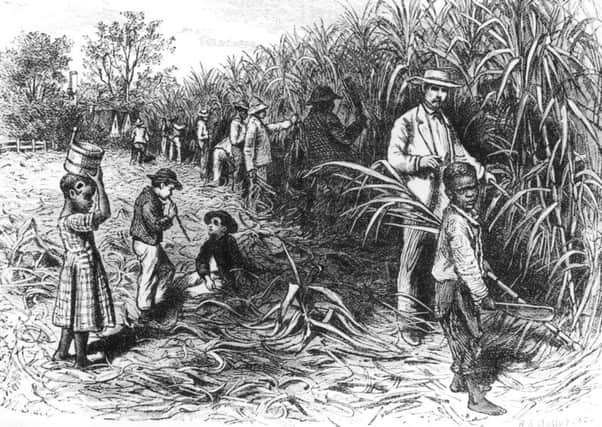Scotland must ‘acknowledge slave trade legacy’


Holyrood’s petitions committee heard a call instead for Scotland to acknowledge its heritage of slavery in Jamaica and set about building new bonds with the Caribbean island. This would see Jamaica become a “priority country” in terms of future trade and development similar to the status Malawi has.
Campaigners from the Flag Up Scotland Jamaica campaign appeared before the committee yesterday calling for Scotland to recognise its “moral obligation” to the island.
Advertisement
Hide AdAdvertisement
Hide AdThe extent of the links remains relatively unknown, campaigners say. Some 60 per cent of names in the Jamaican telephone directory are Scottish in origin.
Campaigner David Pott read out a message from Nationalist MP Anne McLaughlin who sits on the Flag Up Scotland Jamaica board in support of the petition.
“It does not call for financial reparations which it would be perfectly entitled to do, instead it sensibly calls for a change in focus in the relationship between our two countries,” the message stated.
Mr Potts added: “The people of Scotland seem to be very open acknowledging that slavery did indeed benefit Scotland and damaged Jamaica.
“We are fortunate in Scotland that there appears to be little resentment from Jamaicans and the bond between our countries remains strong.
“The cost to Scotland of doing as the petition asks is very little – the value to us and to Jamaica would be immeasurable.”
Scottish slave ownership was higher than in any other part of the UK, recent research has shown. The petition highlights that between 1760 and 1830 the Scottish economy grew from one of the weakest in Europe to become one of the most powerful.
Profits were made from vast amounts of Jamaican sugar, as the old sugar sheds that still exist in Greenock today testify. Other industries in Scotland profited, as the import of linen to clothe slaves in Jamaica increased tenfold between 1765 and 1795.
Advertisement
Hide AdAdvertisement
Hide AdThe campaign launched around the time of the Commonwealth Games last year, but momentum is building. The Ministry of Education in Jamaica is already keen to set up schools partnerships, MSPs heard yesterday. Committee convenor Michael MacMahon said: “I think we should be asking questions as to how we can deepen and strengthen what you’ve already started to take forward.”